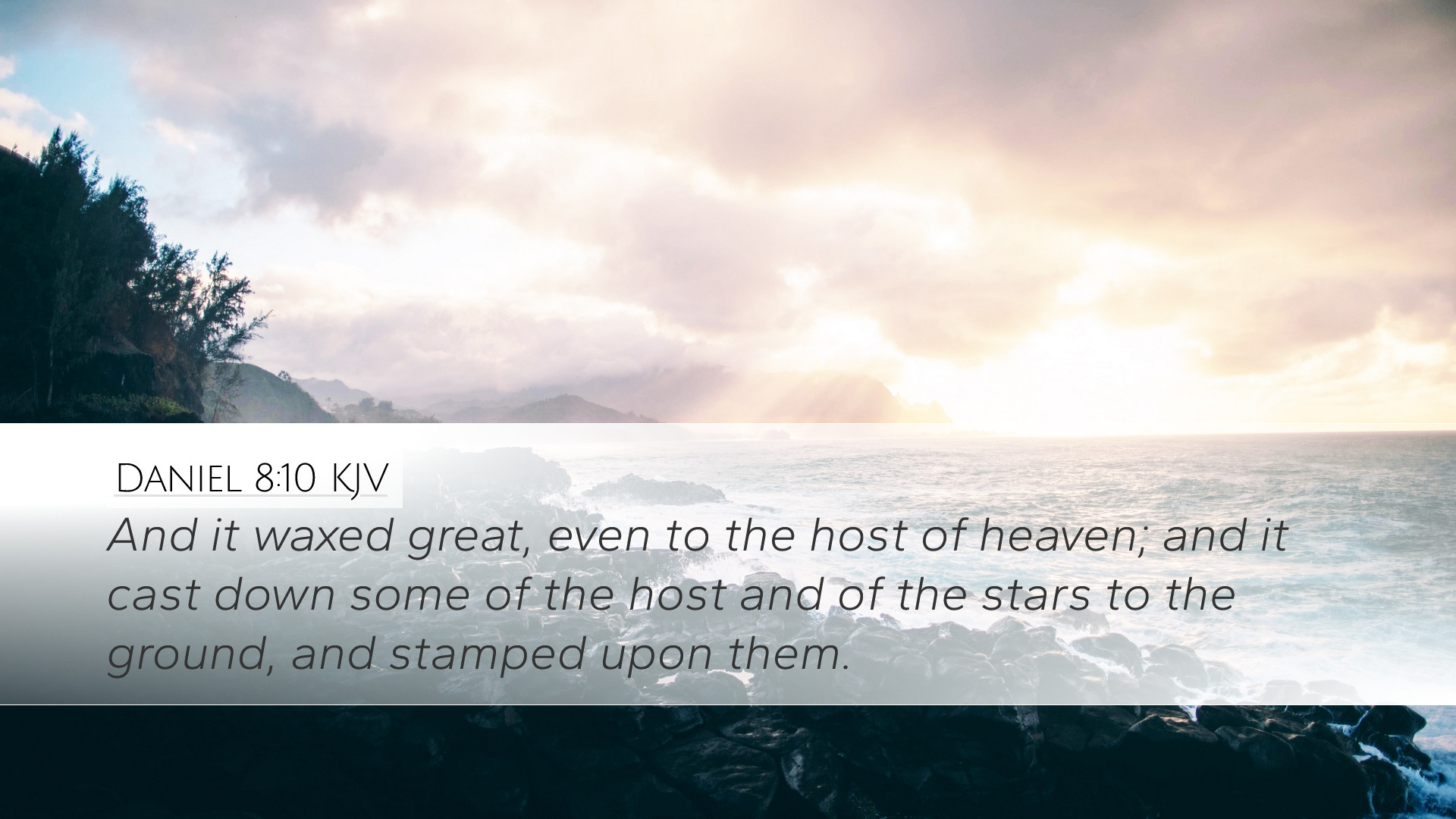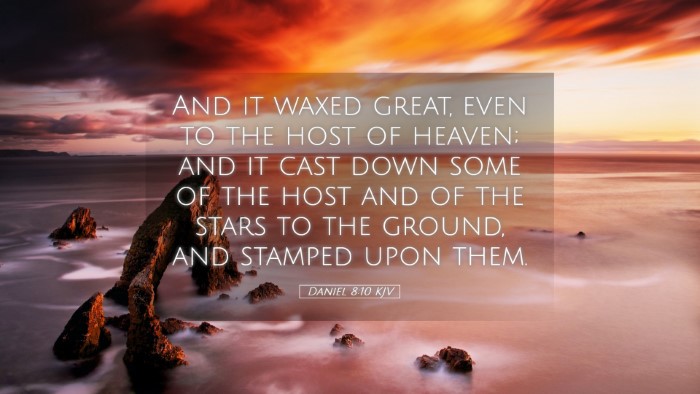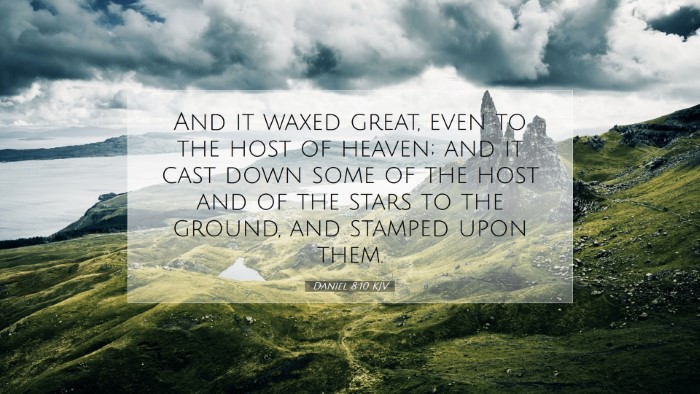Commentary on Daniel 8:10
Daniel 8:10 reads: "And it grew up to the host of heaven; and it cast down some of the host and of the stars to the ground, and stamped upon them." This verse is packed with profound symbolism and implications regarding the apocalyptic visions experienced by the prophet Daniel. Below is a synthesis of insights from several public domain commentaries, which collectively enhance our understanding of this significant scripture.
Contextual Background
To grasp the full meaning of Daniel 8:10, it is essential to consider the chapter's context. Daniel receives a vision during the reign of Belshazzar, which corresponds to events taking place in the Greek Empire. This vision includes symbolic representations of various empires and their eventual downfalls. Daniel's prophecies are rich with imagery that reflects the spiritual battles impacting the people of Israel.
Symbolism of the Host of Heaven
In this verse, the "host of heaven" typically represents celestial beings or angelic powers. Matthew Henry comments that the phrase signifies "the powers of heaven," suggesting that the forces of God and His angels are involved in the narrative. This evokes a dualistic understanding of the battle between good and evil.
Interpretation of 'Stars'
Furthermore, the "stars" cast to the ground are often interpreted as significant figures or leaders, possibly even heavenly messengers who fall due to the rise of this overpowering entity, symbolized by the ram and the goat in Daniel's vision. Albert Barnes observes that this could point to the degradation of the spiritual state of nations when they succumb to tyranny or despotism.
The Nature of the Beast
The verse alludes to a powerful beast that grows to threaten the divine order. Adam Clarke highlights that this beast's growth represents its increasing power, which can ultimately lead to the oppression of God's people. The action of "stamping" refers not just to physical dominion but also to an aggressive attempt to suppress the truth and silence prophetic voices within the community.
Theological Implications
The oppression of the righteous: The metaphor of casting down the heavenly host illustrates the distress faced by God’s people amid oppressive regimes. It serves as a reminder of the spiritual warfare that ensues when tyranny rises, and believers feel besieged on all sides. The faithful are encouraged to remain steadfast in their faith, contingent on God's ultimate sovereignty over the nations.
The Promise of Restoration
Despite the stark imagery of defeat, the overarching narrative of Daniel reassures that God's plan cannot be thwarted. Barnes emphasizes the eternal promise: while tyrants may rise, they will eventually face divine judgment. Thus, believers are filled with hope, as history shows God’s eventual triumph over evil.
Lessons for Today’s Church
-
The call to vigilance:
The Church is invited to remain alert and discerning, recognizing the underlying battles at play in the world today.
-
The importance of intercession:
In light of the “host of heaven” being influenced by earthly powers, the faithful are encouraged to pray for protection and guidance in turbulent times.
-
The assurance of God’s sovereignty:
Daniel’s vision ultimately draws attention to the fact that all leaders and systems are under the authority of God, who will not allow His purposes to be defeated.
Conclusion
Daniel 8:10 serves as a powerful reminder of the ongoing conflict between divine authority and earthly powers. As delineated through the insights of Matthew Henry, Albert Barnes, and Adam Clarke, this verse not only encapsulates a historical moment but also resonates with current issues faced by believers. The imagery of the host of heaven, the downfall of the stars, and the stamping action leads us to consider our own role within this cosmic drama of redemption and struggle. In the end, God's promise to His people remains unbroken, encouraging us to trust in His protection and ultimate victory.


